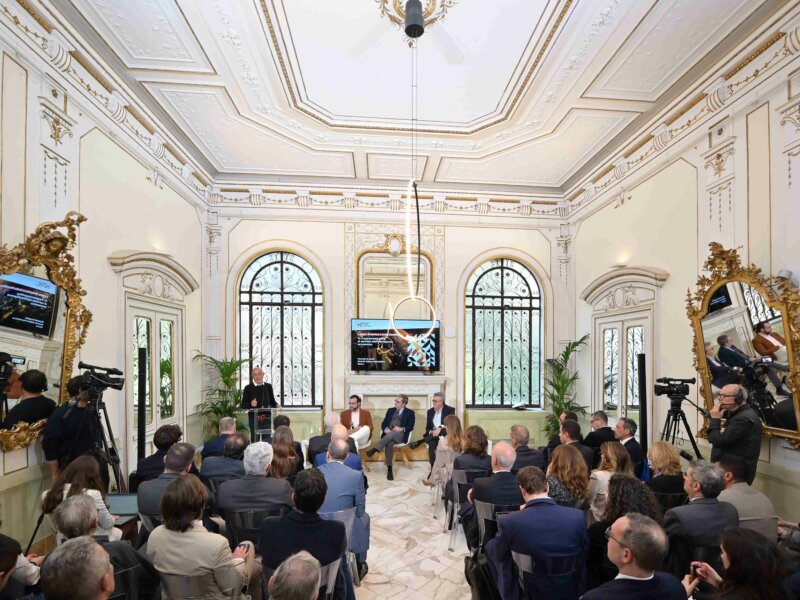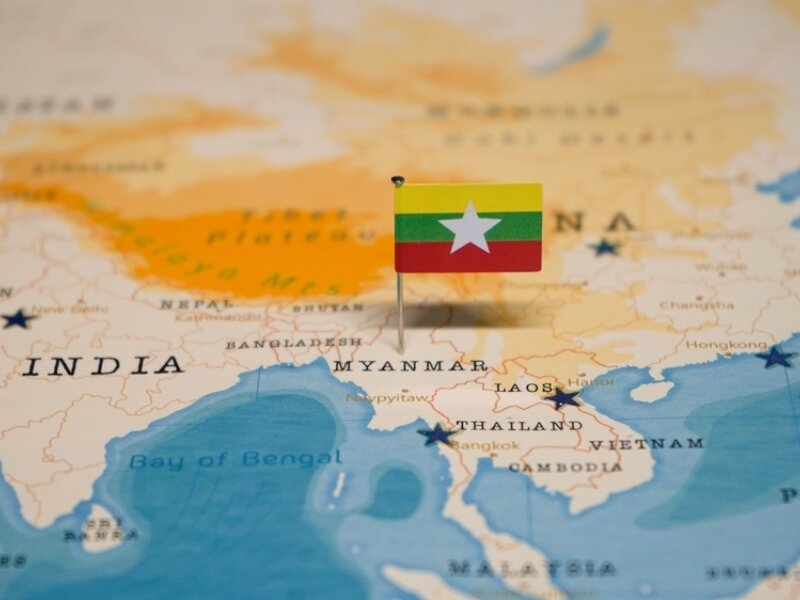Seventy-five years of NATO and the Mediterranean’s security challenge
NATO turns 75, but the new international context and the threats to the Euro-Atlantic security pose new challenges for the Alliance. The article by Enrico Casini, published by Il Giornale on Friday 19th of April 2024.

Seventy-five years ago, in April 1949, NATO was founded in Washington. There were twelve founding countries, ten Europeans and two from North America. Today, with the recent entry of Sweden, they have become thirty-two, distributed over three continents, with a population of almost one billion inhabitants. The enlargement process, over the course of its history, has led NATO to involve almost the entire European continent, also including many countries bordering the Mediterranean, comprising the Iberian Peninsula, Türkiye and the Balkans. Italy, which was among the founders of the Alliance, has always found in the Euro-Atlantic dimension one of the main spheres of action of its foreign policy, together with the Mediterranean one. Today both dimensions are increasingly linked. In fact, the evolutions of geopolitics and the recent winds of war blowing from the Middle East; the conflict in Ukraine with its reverberations in nearby areas; the Red Sea crisis, and the other hotspots of insecurity spreading from Africa to the Caucasus up to Afghanistan, clearly demonstrate how relevant this region is for European security and for NATO. In the coming years it will be more and more so.
When the Atlantic Alliance was founded, in the early years of the Cold War, Europe was still covered in ruins and was starting to recover thanks to aid from the Marshall Plan. Once Nazism was defeated, Europe had to be defended from a new totalitarian threat, Soviet communism. On American impulse, with the desire to build a solid basis of shared security between the Euro-Atlantic countries, the new alliance was founded. This, as President Mattarella recently recalled, has guaranteed stability and peace up to the present day. The bipolar balance between East and West remained in place until the collapse of the Berlin Wall, when in the timeframe of only a few months the collapse of Europe’s communist regimes also put an end to the Cold War. Then began a new phase of international politics, in which NATO immediately became the protagonist. First, the Balkan wars, then the attacks of September 11, 2001, and the subsequent global war on terror, demonstrated how the dangers for global and European security had changed; and consequently, how the Alliance itself could fulfill the new role of protecting the Euro-Atlantic security against the emerging threats of the new millennium. Many of these threats were already present and rooted on the two shores of the Mediterranean.
At the beginning of the third millennium, Russia’s political and military return, the rise of China, and the outbreak of new international unrest, have further accelerated the process of change of global balances, hence confirming the importance of an actor like NATO. The Russian invasion of Ukraine in February 2022 broke a balance of peace in Europe that had been consolidated in more than seventy years. The return of an interstate war on European soil has confirmed NATO, in its strategic centrality, as the sole and irreplaceable guarantor of European stability and security. And it is not a coincidence that historically neutral countries such as Sweden and Finland, faced with the return of the Russian threat, have asked to be part of NATO.
Over the last thirty years, NATO has been able to adapt to the changing world, continuing to provide a security umbrella for Europe. It also become an instrument of action, on a global level, in complex theaters such as the Balkans, Libya, Afghanistan. NATO’s strategic perspective has been gradually updated by the various strategic concepts which from the 1990s onwards, on a ten-year basis, have redefined its strategic and political architecture, broadening its scope of action each time. At the same time, it has consolidated itself as a unique forum for the transatlantic dialogue and has become a global player, developing solid relationships with strategic partners on the other side of the world, from Japan to Australia, and forms of dialogue and collaboration with the main countries of the Middle East, North Africa, and the Gulf.
With the Ukrainian war tensions with Russia have returned strong on the Eastern borders of the Alliance. Yet simultaneously, they are also increasing in the Mediterranean, where from Sub-Saharan Africa to Libya and Syria, the Russian presence, in recent years, has grown a lot, similarly to all the major world and regional powers.
Moreover, the Mediterranean – which is the southern border of both NATO and Europe – is also the geographical and geopolitical crossroad between the West, the East and the Global South, between Africa, Asia and Europe. In this area of the world there are enormous interests for all the great powers: economic, energy, military and political interests which make it fundamental for global balances. In recent years, especially after the end of the Arab Spring, it has been increasingly exposed to tensions and conflicts. The presence of hybrid wars and geopolitical competition; the multiplying of forms of instability linked to humanitarian, environmental and economic crises; and the persistence of phenomena such as terrorism or transnational crime, all represent a set of elements capable of seriously threatening the Euro-Atlantic security. To an extent that during the last NATO’s summits, greater importance was gradually given to the issue of security along the Southern Flank. A complex issue, which affects not only aspects of a military nature, but also extends to different dimensions connected between them, such as economic, energy, health, or food. This issue in the near future will be increasingly affected by factors such as changing demography or climate change.
For Italy, obviously, this theme is of strategic priority, reiterated several times by the Government in international fora – as the Mattei Plan itself, given its projection towards Africa. Moreover, our country’s level of commitment in this region, on a political, diplomatic, and military level, is obviously strong. It couldn’t be otherwise. But not everyone in Europe seems to have demonstrated sufficient awareness of the seriousness of the dangers looming over the Old Continent from the South. Instead, precisely because of the geopolitical game being played in the Mediterranean, also in connection with the war in Ukraine, it is strategic to strengthen initiatives and presence, throughout the Southern Flank, to try to consolidate the foundations of a lasting stability that can strengthen European security.



